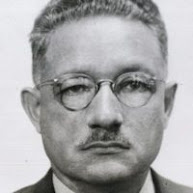"Saluting the Unsung Heroes: Recognizing the Efforts of Scientists and Researchers in the Fight Against Malaria in Tanzania
Malaria is a significant public health
challenge in Tanzania, with high morbidity and mortality rates, particularly
among young children and pregnant women. Over the years, many individuals in
Tanzania and beyond have dedicated their lives to fighting this disease,
conducting research, implementing interventions, and advocating for greater
awareness and resources. In this article, we will highlight some of these
dedicated individuals and their contributions to the fight against Malaria in Tanzania,
as well as explore how the One Health approach can be utilized to further
improve Malaria control efforts.
Hashtag: #Malaria FreeTZ "Together we can eliminate Malaria in Tanzania
KEY MILESTONES IN THE TIMELINE OF MALARIA IN TANZANIA
- 1927: The colonial government establishes a Malaria Control Unit to coordinate efforts to control the disease.
- 1934: The Rockefeller Foundation establishes a Malaria control program in Tanzania, which focuses on developing new tools and strategies for Malaria control, such as insecticides and improved housing to reduce contact with Malaria -transmitting mosquitoes.
- 1951: The World Health Organization (WHO) launches the Global Malaria Eradication Campaign, which includes Tanzania.
- 1961: Tanzania gains independence from colonial rule and establishes its national Malaria control program.
- 1969: Tanzania adopts the use of DDT for indoor residual spraying (IRS) to control Malaria.
- 1978: Tanzania launches the Expanded Programme on Immunization (EPI), which includes the introduction of the measles vaccine and the integration of Malaria control activities into primary health care.
- 1992: Tanzania adopts a policy of using artemisinin-based combination therapies (ACTs) to treat Malaria.
- 1998: The Roll Back Malaria Partnership is established to coordinate global efforts to control and eliminate Malaria.
- 2000: Tanzania adopts the use of insecticide-treated bed nets (ITNs) as a key Malaria prevention strategy.
- 2006: Tanzania launches the National Malaria Control Strategic Plan (NMSP) 2006-2010, which sets out a comprehensive approach to Malaria control and prevention.
- 2015: Tanzania launches the National Malaria Strategic Plan (NMSP) 2015-2020, which focuses on achieving universal coverage of Malaria prevention and treatment interventions.
- 2020: Tanzania launches the National Malaria Strategic Plan (NMSP) 2020-2025, which includes a focus on innovative approaches to Malaria control and prevention, such as community-based interventions and the use of new technologies
Table of a few listed
Researchers (Prof , Veterinary, Medical Doctor, Entomologist, Epidemiologist …) who
contributed to Malaria over the past years
These are
just a few examples of the many Tanzanians who have been involved in the fight
against Malaria since 1927. Their contributions have been instrumental in the
progress that has been made, and their dedication and commitment continue to
inspire us in the ongoing fight against Malaria
|
SN |
Credentials |
Contribution |
|
1 |
Dr. Fred Soper |
Led the successful campaign to eradicate Malaria in Zanzibar in the 1950s |
|
2 |
Dr. Margaret Chan |
Served as the Director-General of the World Health Organization from
and was a strong advocate for Malaria control efforts in Tanzania and other
countries 2006 to 2017 |
|
3 |
Dr. Amani Yahya |
Tanzanian researcher who has made significant contributions to the
study of Malaria in Tanzania and the
development of new tools for Malaria control |
|
4 |
Dr. Reginald Hamish Brown |
Tanzanian doctor and researcher who played a key role in developing
the drug chloroquine, which was widely used in the treatment of Malaria until the development of drug resistance |
|
5 |
Dr. Davis Mwamfupe |
Tanzanian researcher who has studied the impact of climate change on Malaria
transmission in Tanzania and the
effectiveness of different Malaria control strategies |
|
6 |
Dr. Flora Kessy *2020 |
Tanzanian doctor who has worked on Malaria control efforts at the local and national
level, including the development of Malaria control policies and programs |
|
7 |
Dr. Salim Abdulla |
Tanzanian researcher who has led several Malaria control studies in
Tanzania and other African countries, including the development of new Malaria
vaccines. |
|
8 |
Dr. Honorati Masanja |
Tanzanian epidemiologist and researcher who has led studies on the
epidemiology of Malaria in Tanzania
and the effectiveness of various Malaria control interventions |
|
9 |
Dr. Alutu Lucas |
Tanzanian researcher who played a key role in the development of the
insecticide DDT, which was widely used in Malaria control efforts in Tanzania and other
countries |
|
10 |
Dr. Christian Lengeler |
A Tanzanian-born researcher who has studied the effectiveness of
different Malaria control strategies,
including the distribution of insecticide-treated bed nets and the use of
indoor residual spraying |
|
11 |
Dr. Marcel Tanner |
Swiss researcher who has worked extensively on Malaria control
efforts in Tanzania and other African countries, including the development of
new Malaria vaccines and the use of community-based approaches for Malaria
control. |
|
12 |
Dr. Saidi Kapiga |
Tanzanian epidemiologist who has led studies on the prevalence of Malaria
in Tanzania and the impact of Malaria control interventions on Malaria transmission |
|
13 |
Dr. Mary Mwanyika-Sando |
Tanzanian doctor and researcher who has worked on Malaria control efforts at the local and national
level, including the development of Malaria control policies and programs |
|
14 |
Dr. Saidi Egwaga |
Tanzanian epidemiologist who has led studies on the prevalence of Malaria
in Tanzania and the effectiveness of different Malaria control interventions. |
|
15 |
Dr. Don DeSavigny |
A Tanzanian-born researcher who has worked on Malaria control efforts in Tanzania and other
African countries, including the development of new Malaria control strategies and the evaluation of
existing interventions |
|
16 |
Dr. Rose Nathan |
Tanzanian researcher who has studied the social and economic impact
of Malaria on communities in Tanzania
and the effectiveness of community-based approaches to Malaria control |
|
17 |
Dr. Elifuraha Mtui |
Tanzanian epidemiologist who has led studies on the impact of Malaria
on maternal and child health in
Tanzania and the effectiveness of interventions to reduce Malaria -related
morbidity and mortality |
|
18 |
Dr. Sigsbert Mkude |
A researcher who has been working on the development of new drugs for
malaria treatment in Tanzania |
|
19 |
Dr. Jacklin Mosha |
A medical entomologist who has been studying the behavior and ecology
of malaria vectors in Tanzania in order to develop new control strategies |
|
20 |
Dr. Mwele Malecela *2022 |
Public health researcher who has been involved in the implementation
of national malaria control programs in Tanzania and other African countries. |
|
21 |
Dr. Eliningaya J. Kweka |
a medical entomologist who has been studying the biology and behavior
of malaria vectors in Tanzania and developing new interventions to prevent
transmission |
|
22 |
Dr. Irene L. Kamanza |
The medical researcher who has been involved in the testing and
evaluation of new malaria diagnostic tools in Tanzania |
|
23 |
Dr. Boniface N. Mpondo |
The medical researcher who has been studying the clinical and
epidemiological aspects of malaria in Tanzania and other African countries. |
|
24 |
Dr. Erick Manyiri |
A researcher who has been involved in the testing and evaluation of new
malaria vaccines in Tanzania |
|
25 |
Dr. William Kisinza |
A medical Entomologist who has been leading efforts to control malaria
vectors in Tanzania through the use of insecticide-treated bed nets and other
interventions |
|
26 |
Dr. Winfrida Shirima |
A veterinary scientist who has been involved in the development of new
tools and strategies for controlling malaria vectors in Tanzania |
|
27 |
Dr. George O. Oduor |
A veterinary scientist who has been studying the ecology and behavior
of malaria vectors in Tanzania and developing new interventions to control
their populations |
|
28 |
Dr. Fredrick D. Kibira - |
A veterinary scientist who has been involved in the development and
testing of new mosquito-repellent products for malaria control in Tanzania |
|
29 |
Dr. Leonard E. G. Mboera |
Public health researcher who has been studying the ecology and
epidemiology of malaria in Tanzania, including its transmission from animals
to humans. |
|
30 |
Dr. Iddi S. Mkilaha *2016 |
A veterinary scientist who has been studying the biology and behavior
of malaria vectors in Tanzania and developing new interventions to prevent
transmission |
|
31 |
Dr. Salum H. Kambi |
A veterinary scientist who has been involved in the development and
testing of new malaria diagnostic tools and treatment strategies in Tanzania |
|
32 |
Dr. Fredros O. Okumu |
A medical entomologist who has been developing innovative strategies
for controlling malaria vectors in Tanzania, such as the use of odor-baited
traps and genetically modified mosquitoes. |
NB Community health
workers and volunteers, who have played a critical role in Malaria prevention
and control efforts at the local level, including the distribution of
insecticide-treated bed nets and the administration of antimalarial l Drugs.
***********************************************************************************
Letter of Appreciation
*********************
Dear Esteemed Scientists and Researchers,
It is with great respect and admiration that we write to
express our deepest gratitude for your exceptional contributions to the field
of public health. As a start-up Public Health -NGO committed to improving the lives of vulnerable
communities, we recognize the invaluable role that you have played in advancing
our understanding of malaria and developing innovative interventions to combat
its spread.
As we mark the approaching 25th of April, we are reminded of
the countless lives that have been saved and the health outcomes that have been
improved, thanks to your unwavering dedication and tireless efforts in
Tanzania. We acknowledge and appreciate the important role that you have played
in making the world a better place, and your adherence to the Alma Ata
Declaration, the Millennium Development Goals, and the Sustainable Development
Goals, as well as your adherence to the International Health Regulations of
2005.
We are particularly grateful for the access that the
National Institute for Medical Research (NIMR) has granted to authorize the
research you have conducted in Tanzania. Your research has been crucial in
helping communities and populations adjust to primary health needs and has had
a significant impact on the health and well-being of Tanzanians.
We understand the importance of your
continued work in the fight against malaria, and the critical role that it
plays in achieving our shared goal of improving public health. We remain
committed to partnering with you to support and amplify your efforts and to
create a brighter future for all those affected by malaria.
On behalf of SOHICOHE, we extend our sincere appreciation
and gratitude for your unwavering commitment to the advancement of public
health, and for the tremendous contributions that you have made to the fight
against malaria in Tanzania. Your efforts have not gone unnoticed, and we are
confident that together, we can make a meaningful difference in the lives of
those affected by malaria.
With utmost respect and admiration,
Communication and Dissemination -SOHICOHE Team

























.png)
Comments
Post a Comment